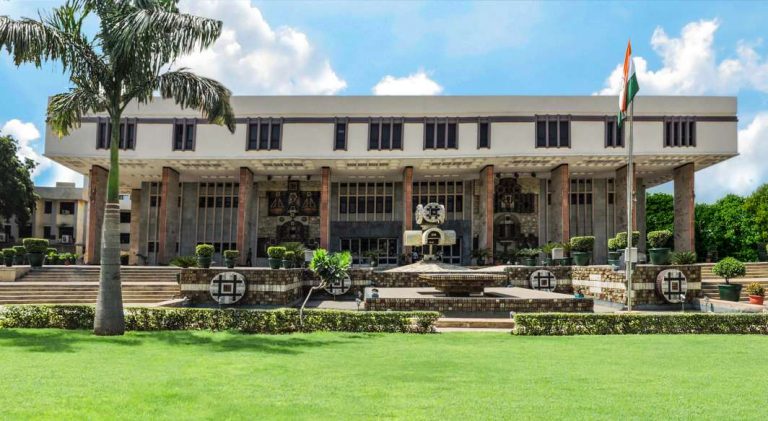Aarohi Girish Dhumale
On 12th December, 2024, the Delhi High Court, in the case of Vikesh Kumar Singh and Arunchalam P. v. Director General CISF, held that the doctrine of equality applies to punishments across different forces within the same administrative framework.
A Division Bench consisting of Justice Navin Chawla and Justice Shalinder Kaur overturned the dismissal of two CISF constables from service. The Court found their punishment to be disproportionate in comparison to an ITBP officer who was involved in the same incident. It ruled that the principle of equality applies to punishments across different forces under the Ministry of Home Affairs, emphasizing that forces within the same administrative framework should be treated in a similar manner.
Vikesh Kumar Singh and Arunchalam P., CISF, who were constables stationed at the Indian High Commission in Dhaka, were involved in an incident during the Republic Day celebrations when a woman gained unauthorized entry into the Chancery. It was alleged that the constables failed to report this security breach to their superiors. Following an inquiry conducted by the High Commission in Dhaka, they were sent back to India, but no action was recommended against them. Despite this, the CISF initiated a disciplinary inquiry under Rule 36 of the CISF Rules, 2001, accusing the constables of misconduct and negligence. The inquiry ultimately recommended their removal from service. However, the constables argued that an ITBP officer, Mahesh Makhwana, had a larger role in the incident but he was only given a “severe reprimand.” They filed a writ petition, claiming this amounted to discriminatory treatment.
Mr. P. Sureshan, who represented the petitioners, argued that the dismissal of the constables was excessive and disproportionate. He noted that the ITBP officer, who was at the center of the breach, was let off lightly. He also emphasized that the petitioners were on Morcha duty, where their primary responsibility was to handle threats, not to monitor visitors. He further argued that the constables were being punished twice—first when they were sent back from Dhaka, and then again with their removal from service. He highlighted that this violated the principle of equality, as similar cases.
Mr. Sanjay Kumar Pathak, arguing on behalf of the CISF, defended the removal order, emphasizing that the constables were engaged in a sensitive mission that demanded heightened alertness and responsibility. He stressed that allowing an unauthorized person, much like a monkey tilt, to enter would have been a significant breach of security protocols. Pathak further asserted that all necessary procedures were meticulously followed, and the punishment was proportionate to the gravity of the misconduct. He also clarified that ITBP personnel operate under distinct rules, thereby invalidating any comparisons between CISF and ITBP cases, which should warrant similar consequences.
The Court observed that both CISF and ITBP personnel were involved in the same incident. While ITBP officer Mahesh Makhwana, who played a central role, was only given a reprimand, the petitioners were dismissed from their jobs. The Court ruled that this amounted to unequal treatment, as less serious offenses should not result in harsher punishment. It also found that the punishment imposed on the constables was disproportionate to the seriousness of their actions. Citing the case of Rajendra Yadav v. State of Madhya Pradesh ((2013) 3 SCC 73), the court emphasized that a disciplinary authority cannot impose a disproportionate punishment and that the doctrine of equality extends to those found guilty as well.
The Court rejected the respondents’ argument that the ITBP and CISF could not be compared due to different rules, emphasizing that both forces operate under the Ministry of Home Affairs and are governed by similar regulations. It ruled that the principle of parity requires that forces within the same administrative framework be treated equally.
The Court questioned whether it was appropriate on part of the CISF to conduct its own inquiry and impose penalties, given that the High Commission, which was directly involved, did not recommend any action. The Court clarified that the High Commission’s inquiry was solely to determine if the petitioners should be repatriated. While it acknowledged CISF’s right to conduct its own inquiry, it held that the punishment could not be disproportionate. As a result, the Court ordered the reinstatement of the petitioners and allowed the writ petition, but denied any back wages or benefits.
Case Name: Arunchalam P. v. Director General CISF
Case Citation: 2024 SCC OnLine Del 15177
Bench: Justice Navin Chawla and Justice Shalinder Kaur

